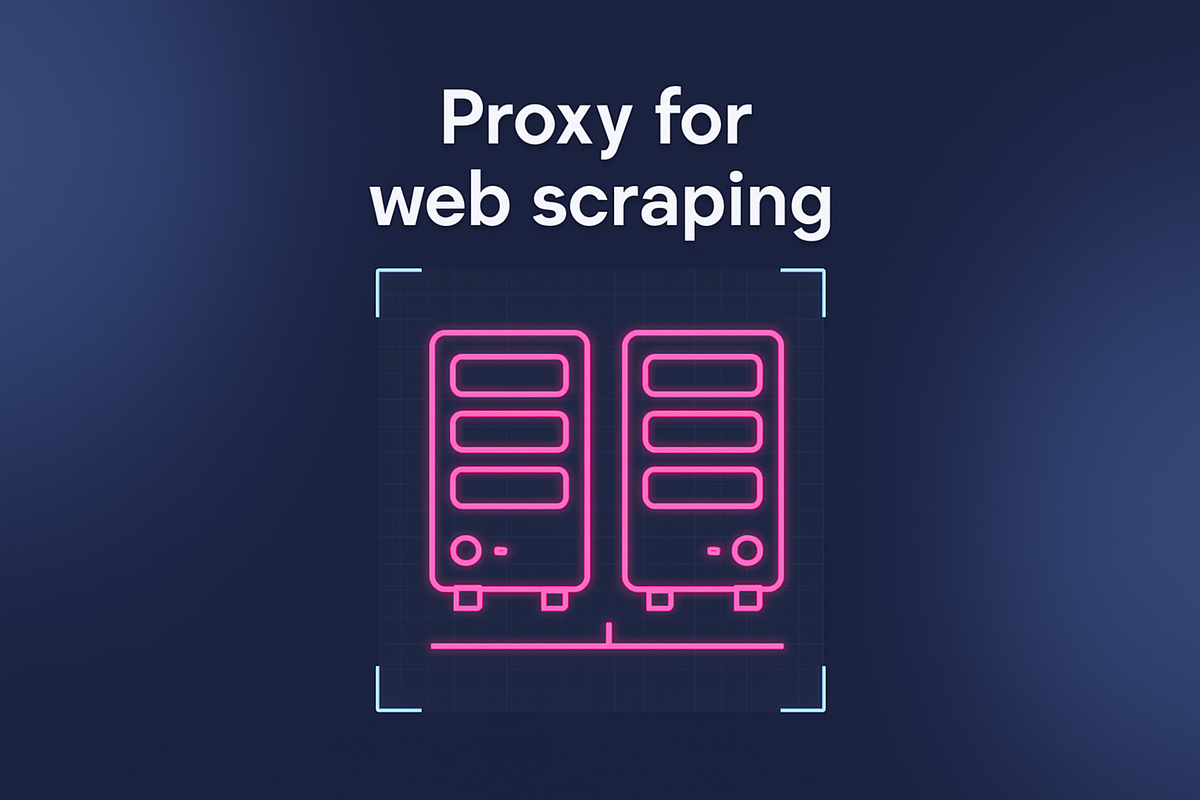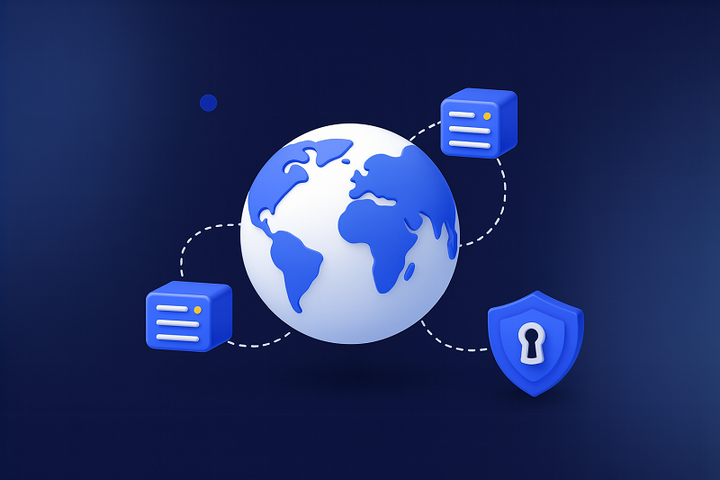Proxy server for web scraping: How to stay undetected
Learn how to choose the right proxy server for web scraping without getting blocked. We break down key selection criteria and review reliable providers that support WADE X and large-scale data extraction.

How to choose a proxy server for web scraping without getting blocked
If you're scraping at any serious scale, proxies are not optional — they're foundational. The difference between a good and a bad proxy provider is the difference between extracting clean, structured data and getting your entire operation rate-limited or blocked.
There are plenty of services on the market. Most of them promise “high speed”, “millions of IPs”, and “100% success rates.” None of that matters unless you know how to evaluate a proxy provider for actual scraping workloads.
Let’s look at what matters — and then explore the proxy services that actually deliver.
What really matters when choosing a proxy server
The first choice you have to make is about IP type. For scraping public web content, residential proxies are the most common option — they look like regular home users and are generally trusted by most websites. If you're scraping mobile-heavy platforms or social media apps, mobile proxies (4G/5G) are even better — though they’re pricier. Datacenter proxies, while cheaper and faster, are easily fingerprinted and flagged.
Next comes IP rotation. Scraping with static IPs will get you banned quickly, especially if your volume is high. Choose a provider that supports rotating IPs or at least sticky sessions with time-based renewal. Some platforms detect rotation patterns, so having control over how and when IPs change is essential.
Geo-targeting is also critical. Country-level is often enough, but if you're doing localized scraping — like checking prices or content across cities — make sure the provider supports city-level targeting or ASN filtering.
And then there’s integration. Does the provider support real-time control via API? Can it work seamlessly with tools like WADE X, which supports browser-based scraping and spoofing? You don’t want a setup that fights your scraper instead of enabling it.
Real problems scrapers face — and how proxies can help
Scraping isn’t just about pulling HTML. It’s about not getting noticed. Platforms use rate limiting, browser fingerprinting, CAPTCHAs, JavaScript challenges, and behavior analysis to detect and stop bots.
The right proxy server for web scraping with Python requests won’t fix all of that — but it gives you a fighting chance.
- Sites block too many requests from the same IP? Rotating proxies solve it.
- Pages show different content depending on location? Use geo-targeted proxies.
- You need to keep a session alive? Sticky proxies with long TTL help.
- Your scraper keeps getting served JS or CAPTCHA walls? Combine proxies with WADE X for fingerprint masking and headless browser control.
The wrong proxy setup will get you blocked — even if your code is perfect. The right one will quietly and reliably deliver results.
Proxy services that actually work
Let’s look at four proxy providers that are built for scraping. These are not generic VPN-style services. They’re designed specifically for scalable, automated data extraction. All are compatible with WADE X and support integration via API.
ProxyEmpire
If you're running a long-term scraping project, ProxyEmpire is one of the most balanced options out there. It offers access to over 9.5 million residential and mobile IPs across 170+ countries. Rotation is handled server-side, and geo-targeting is included even in lower-tier plans. The interface is minimal, which is a plus. You get real-time usage stats, auto-rotation, and a clean API. It's a solid choice whether you're targeting simple directories or more complex dynamic content.
ResiProx
This one is built for scale. ResiProx has one of the largest mobile proxy pools on the market — over 18 million IPs — with support for sticky sessions, AI-assisted routing, and granular targeting down to ASN level. Where it really stands out is performance: high success rates even on mobile-heavy targets, responsive support, and excellent uptime. If you're scraping sites that detect datacenter IPs instantly, this is a safer alternative.
LTEBoost
LTEBoost focuses entirely on 4G/5G mobile proxies. That means trust. Their IPs appear as genuine mobile devices, which helps when scraping apps or web interfaces that serve different content to mobile users. Despite the high trust factor, their setup is fast and lightweight — you get unlimited bandwidth, support for HTTP(S) and SOCKS5, and fast IP rotation. They also handle IP freshness seriously, which keeps your block rate low even on protected platforms.
Decodo
Decodo is a rebrand of a well-known proxy service, offering residential proxies with simple onboarding and a user-friendly dashboard. It doesn’t try to be everything — and that’s a good thing. For teams or solo devs looking to spin up a reliable proxy solution without a lot of overhead, Decodo works well. Geo-targeting is solid (country-level), IP rotation is configurable, and the service integrates smoothly with WADE X for browser-based scraping sessions.
Final thoughts
Choosing a proxy server for web scraping without getting blocked means more than just picking the first provider with a flashy website. You need the right mix of IP type, rotation logic, targeting options, and integration support.
Stay away from free or generic proxy lists. Focus on services that offer real rotating IPs, transparent usage policies, and tools that work with your scraper — whether it’s a Python script or a full-blown browser emulation stack powered by WADE X.
Test small, track your success rate, and scale only when you’ve proven your setup is stable.
That’s how web scraping becomes sustainable — and invisible.


